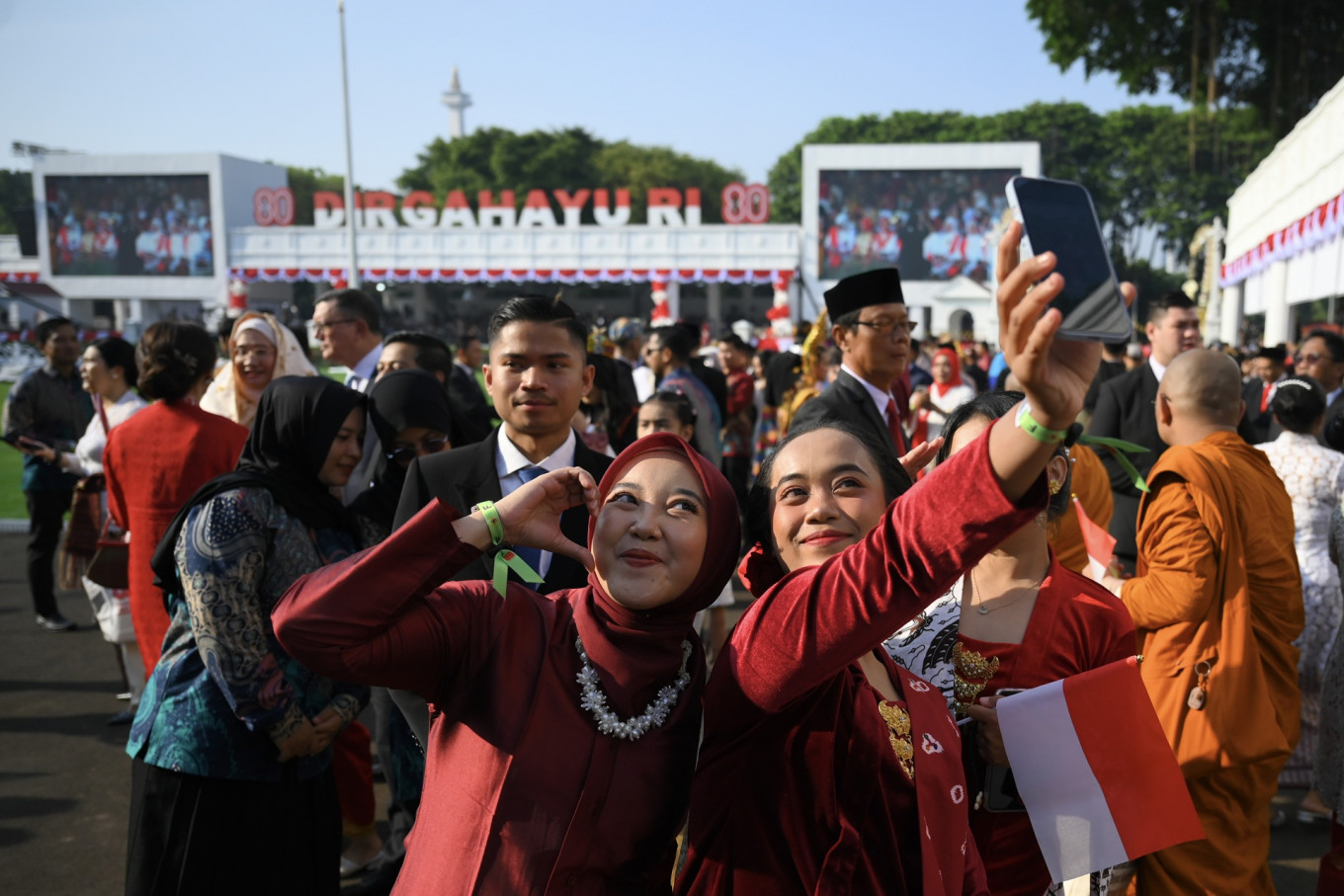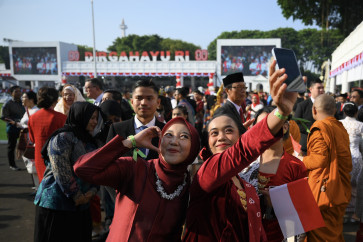Popular Reads
Top Results
Can't find what you're looking for?
View all search resultsPopular Reads
Top Results
Can't find what you're looking for?
View all search resultsIndonesia at 80: Getting China right in the rest of 2025
For Indonesia, the question now is not whether to engage with the world, but how to do so on its own terms.
Change text size
Gift Premium Articles
to Anyone
T
his August, Indonesia celebrated its 80th Independence Day. It is a moment to reflect not only on how far the nation has come, but also on the choices ahead. In eight decades, Indonesia has moved from a newly independent republic to a country of 280 million with regional leadership and global reach. It has championed the Non-Aligned Movement, helped anchor ASEAN’s centrality and built a reputation for steady growth and pragmatic diplomacy.
Yet 2025 is unlike previous milestones. Global fragmentation, economic volatility and intensifying great-power rivalry mean Indonesia must chart its path in a far more turbulent world. President Prabowo Subianto’s Independence Day address captured this mood: a call for discipline, self-reliance and accelerated growth. For Indonesia, the question now is not whether to engage the world, but how to do so on its own terms.
Nowhere is this more urgent than in its relationship with China. Over the past decade, China has become Indonesia’s largest trading partner, a major investor in infrastructure and industry and a crucial source of technology and finance. Nickel processing, electric vehicles and industrial parks bear the imprint of Chinese capital and firms. Yet this engagement is often pragmatic, shaped more by economic gravity than by long-term vision.
The rest of 2025 and beyond will test whether Indonesia can structure its partnership with China in ways that strengthen, rather than constrain, its future. Three priorities stand out.
First, reciprocity. Chinese investment has powered Indonesia’s rise as a manufacturing hub for EVs and critical minerals. But factories and refineries alone do not guarantee sustainable progress. What Indonesia needs, and what it must demand, is deeper knowledge transfer, workforce development and stronger integration of local suppliers.
Without reciprocity, the risk is that Indonesia remains locked in mid-value activities. With it, the country could emerge as a true regional leader, exporting not just raw materials or semi-processed goods but complete industrial ecosystems. The principle is simple: if Chinese firms gain access to Indonesia’s resources and markets, Indonesians should gain skills, technology and lasting competitiveness in return.
Second, resilience. China today faces slowing growth, stalled consumption and industrial overcapacity. That reality inevitably spills over into Southeast Asia. Yet Indonesia can, and should, frame its partnership with China as a resilience-building exercise. China remains a stable and long-term partner, capable of providing scale at moments of global uncertainty. The key is not to ponder ties, but to structure them in a way that prevents overdependence.


















